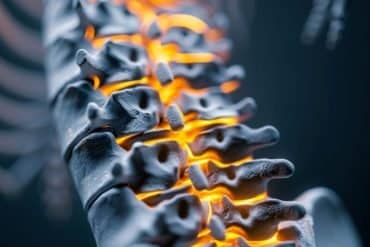Summary: Food neophobia, the extreme hesitation to try new foods, is associated with increased risk of developing chronic diseases, such as type 2 diabetes and cardiovascular disease.
Source: National Institute for Health and Welfare
Food neophobia, or fear of new foods, may lead to poorer dietary quality, increase the risk factors associated with chronic diseases, and thus increase the risk of developing lifestyle diseases, including cardiovascular diseases and type 2 diabetes.
These are some of the findings of a study conducted by the Finnish National Institute for Health and Welfare, the University of Helsinki, and the University of Tartu in Estonia.
Food neophobia is an eating behaviour trait in which a person refuses to taste and eat food items or foods they are not familiar with. The study examined the independent impact of eating behaviour, and especially food neophobia, on dietary quality as well as lifestyle diseases and their risk factors. So far, little research has been carried out on this area.
The study monitored individuals aged between 25 and 74 years in the Finnish FINRISK and DILGOM cohorts and an Estonian biobank cohort during a seven-year follow-up.
Food neophobia is hereditary
Food neophobia has been observed to be a strongly hereditary trait: twin studies have found that up to 78% of it may be hereditary. The trait can be easily measured using the FNS questionnaire (Food Neophobia Scale), which contains ten questions charting the respondent’s eating behaviour. The FNS questionnaire was also used to measure and quantify the fear of new foods in this study.
Food neophobia is common in children and older persons, in particular. Few studies have so far been carried out on food neophobia in the adult population.
Traits similar to food neophobia, including picky and fussy eating, also occur in different age groups in the population. These eating behaviours may also have a significant impact on dietary quality and subsequently health. As different traits associated with eating behaviours have overlapping characteristics making a clear-cut distinction between them is challenging.
Food neophobia has independent health impacts
The study found that food neophobia is linked to poorer dietary quality: for example, the intake of fibre, protein and monounsaturated fatty acids may be lower and the intake of saturated fat and salt greater in food neophobic individuals.
Additionally, a significant association was found between food neophobia and adverse fatty acid profile and increased level of inflammatory markers in blood. Subsequently, food neophobia also increases the risk of developing cardiovascular diseases or type 2 diabetes.

It is often thought that the impacts of eating behaviour and diet on health are mainly mediated through weight changes alone. In this study, however, the impacts of food neophobia emerged independently regardless of weight, age, socioeconomic status, gender or living area.
Your parents were right: you should always try all foods!
“The findings reinforce the idea that a versatile and healthy diet plays a key role, and even has an independent role in health. If we can intervene in deviant eating behaviours, such as food neophobia, already in childhood or youth. This will help to prevent potential future health problems early on”, says Research Professor Markus Perola from the National Institute for Health and Welfare.
“Hereditary factors and our genotype only determine our predisposition to food neophobia. Early childhood education and care and lifestyle guidance in adulthood can provide support in the development of a diverse diet.”
Source:
National Institute for Health and Welfare
Media Contacts:
Heikki Sarin – National Institute for Health and Welfare
Image Source:
The image is in the public domain.
Original Research: Closed access
“Food neophobia associates with poorer dietary quality, metabolic risk factors, and increased disease outcome risk in population-based cohorts in a metabolomics study”. Markus Perola et al.
American Journal of Clinical Nutrition. doi:10.1093/ajcn/nqz100
Abstract
Food neophobia associates with poorer dietary quality, metabolic risk factors, and increased disease outcome risk in population-based cohorts in a metabolomics study
Background
Food neophobia is considered a behavioral trait closely linked to adverse eating patterns and reduced dietary quality, which have been associated with increased risk of obesity and noncommunicable diseases.
Objectives
In a cross-sectional and prospective study, we examined how food neophobia is associated with dietary quality, health-related biomarkers, and disease outcome incidence in Finnish and Estonian adult populations.
Methods
The study was conducted based on subsamples of the Finnish DIetary, Lifestyle, and Genetic determinants of Obesity and Metabolic syndrome (DILGOM) cohort (n = 2982; age range: 25–74 y) and the Estonian Biobank cohort (n = 1109; age range: 18–83 y). The level of food neophobia was assessed using the Food Neophobia Scale, dietary quality was evaluated using the Baltic Sea Diet Score (BSDS), and biomarker profiles were determined using an NMR metabolomics platform. Disease outcome information was gathered from national health registries. Follow-up data on the NMR-based metabolomic profiles and disease outcomes were available in both populations.
Results
Food neophobia associated significantly (adjusted P < 0.05) with health-related biomarkers [e.g., ω-3 (n–3) fatty acids, citrate, α1-acid glycoprotein, HDL, and MUFA] in the Finnish DILGOM cohort. The significant negative association between the severity of food neophobia and ω-3 fatty acids was replicated in all cross-sectional analyses in the Finnish DILGOM and Estonian Biobank cohorts. Furthermore, food neophobia was associated with reduced dietary quality (BSDS: β: −0.03 ± 0.006; P = 8.04 × 10−5), increased fasting serum insulin (β: 0.004 ± 0.0013; P = 5.83 × 10−3), and increased risk of type 2 diabetes during the ∼8-y follow-up (HR: 1.018 ± 0.007; P = 0.01) in the DILGOM cohort.
Conclusions
In the Finnish and Estonian adult populations, food neophobia was associated with adverse alteration of health-related biomarkers and risk factors that have been associated with an increased risk of noncommunicable diseases. We also found that food neophobia associations with ω-3 fatty acids and associated metabolites are mediated through dietary quality independent of body weight.






